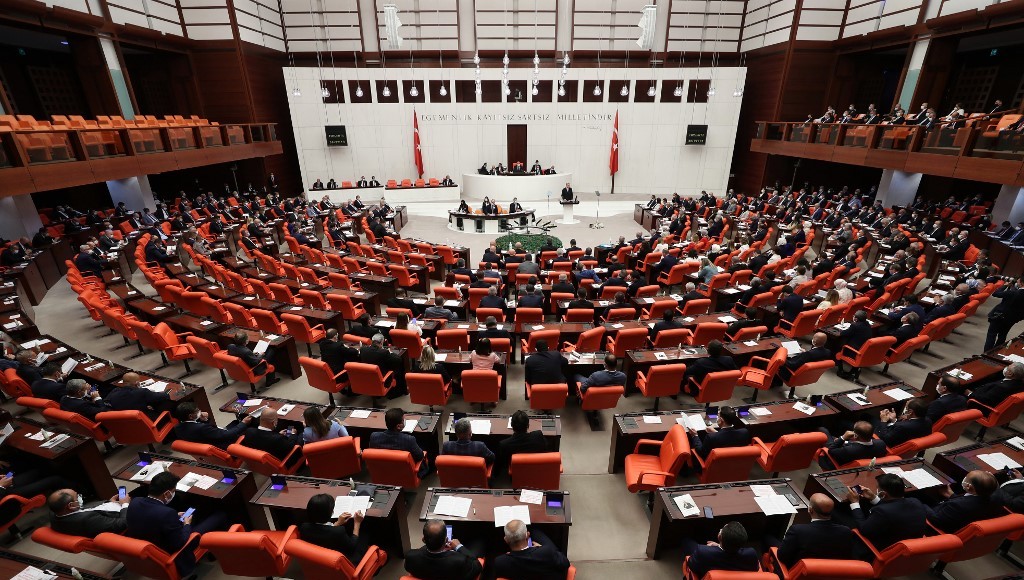Paris-based press organization Reporters Without Borders (RSF) has called on the Turkish government to abandon a proposed amendment on “agents of influence,” warning about its risks for independent journalists in the country and those abroad.
Turkey’s ruling Justice and Development Party (AKP) is pressing ahead with the legislation, which proposes amendments to the Turkish Penal Code (TCK), in its ninth judicial package, which is expected to soon come to the floor of parliament.
According to the proposed legislation, people who are accused of disseminating black propaganda against Turkey or who appear to be speaking in favor of Turkey when in fact they are actually speaking against it as well as individuals who damage the country’s economic, social or public order will be defined as “agents of influence” and face prison time.
The ANKA news agency reported that the proposed addition to Article 339 of the TCK would read: “Research going against the security of the state or its internal or external political interests and relating to Turkish citizens, institutions or organizations or foreigners living in Turkey and responding to the strategic interests or instructions of a foreign state or organization is punishable by a sentence of three to seven years in prison.”
RSF warned in a statement on Tuesday that the proposed legislation could be used in particular against journalists who work for foreign media outlets or media outlets that receive foreign funding in Turkey.
“In view of the oppressive judicial practices that are now well known in Türkiye, we fear that any journalist working for a media outlet that relies on international funding would be threatened with imprisonment under this proposed Penal Code amendment, which unfortunately has no safeguards to prevent judicial abuses,” RSF said in its statement.
The Turkish government was already facing accusations of seeking to censor and expand its influence over foreign outlets, which are the only source of free and independent journalism for some people in Turkey, where the majority of the media is controlled by the government, by requiring them to obtain broadcasting licenses for their online video content.
In line with this, access to the websites of the Turkish edition of Voice of America, the US state-owned international multimedia broadcaster, and Germany’s state-run broadcaster Deutsche Welle were blocked in June 2022 due to their refusal to obtain broadcasting licenses on the grounds that it would be tantamount to bowing to an act of censorship.
RSF warned that if the Turkish Parliament adopts the “broadly and vaguely worded” legislation, any journalist who annoys the government could easily be targeted as an agent of influence who supposedly supported the positions or interests of a foreign country.
Erol Önderoğlu, RSF’s special representative in Turkey, also warned that the proposed legislation would enable the Turkish government to not only continue undermining free speech and press freedom within Turkey but also beyond its borders since the amendment covers Turkish citizens, institutions and organizations located in a foreign country.
Many Turkish journalists who had to flee Turkey in the aftermath of a failed coup in July 2016 to avoid a government crackdown on non-loyalist media outlets and journalists under the pretext of an anti-coup fight have created their own channels of journalism in exile through which they extensively cover issues that go unreported in Turkey due to government pressure on independent journalists. These journalists, most of whom stay in contact with their audience through social media platforms, reach millions of people in Turkey.
According to the RSF warning, Turkish journalists in exile also face the risk of prosecution on accusations of being “agents of influence” if the proposed legislation comes into effect.
Önderoğlu recalled how another controversial piece of legislation, called the “disinformation law,” which criminalized the dissemination of “false or misleading information,” has been used against journalists since came into force in October 2022.
“Following the use of “disinformation” legislation against some 30 journalists in the past 18 months, the possibility of now also using ‘agent of influence’ as a catch-all charge is liable to further undermine journalistic freedom, pluralism and independence in Türkiye,” he said.
Turkey, which has been suffering from a poor record of freedom of the press for years, ranks 158th among 180 countries in RSF’s World Press Freedom Index published on May 3 on the occasion of the World Press Freedom Day.
